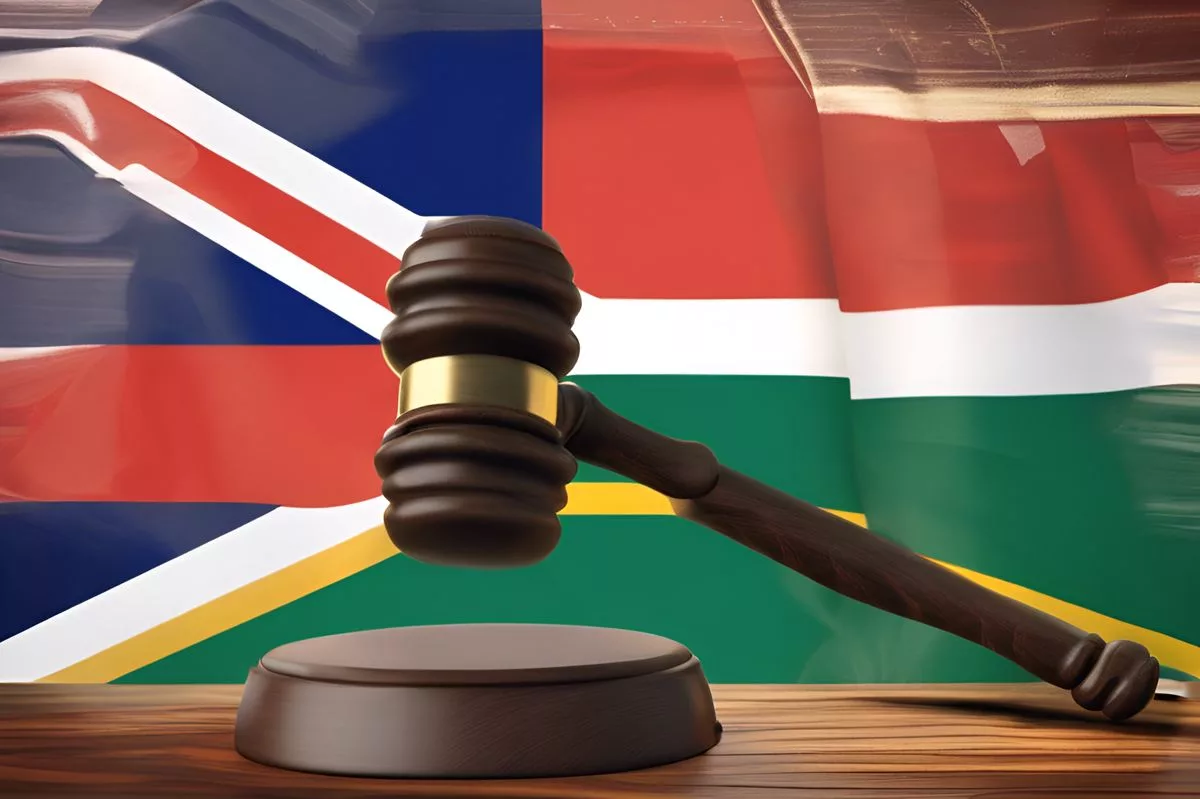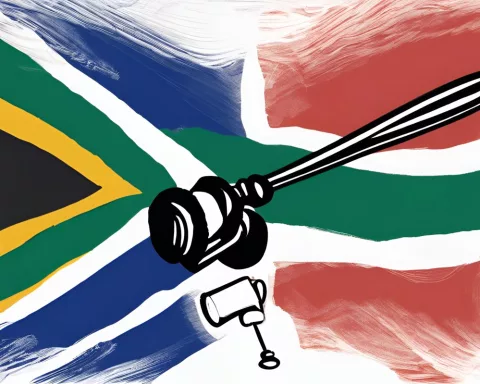The South African National Assembly has established an independent panel to examine evidence that could justify the removal of Mbuyiselo Botha from his role as a commissioner of the Commission for Gender Equality. The panel will investigate allegations of misconduct, incapacity, or incompetence. The move reflects the government’s commitment to preserving justice and equality within their institutions and demonstrates the power of democracy and checks and balances. The panel has one month to conclude its inquiry and submit its report for consideration by the House.
What is the groundbreaking decision made by the South African National Assembly?
The South African National Assembly has established an independent panel to examine evidence that could justify Mr Mbuyiselo Botha’s removal from his role as a commissioner of the Commission for Gender Equality (CGE). The panel’s mission is to ascertain if there is plausible case suggesting that the office holder has committed misconduct, is incapacitated, or incompetent. This reflects the government’s dedication to preserving justice and equality within their institutions.
The Significant Move
The South African National Assembly has made a groundbreaking decision in a bid to safeguard the integrity of its democratic institutions. On March 8, 2024, they declared the establishment of an independent panel. This panel is charged with the initial examination of evidence that could justify Mr Mbuyiselo Botha’s removal from his role as a commissioner of the Commission for Gender Equality (CGE). This resolution is anchored on section 194 of the Constitution.
Fikile Masiko, a Parliament member, sparked this process by proposing a motion challenging Mr Botha’s role. Her motion catalogues numerous accusations against Commissioner Botha, each clearly detailed within the motion. This step was initiated under Rule 129R of the National Assembly, which details the protocol for dismissing a public servant from institutions underpinning constitutional democracy.
Formation of the Independent Panel
Following this announcement, the Speaker called upon various parties to put forward nominations for the independent panel. This trio, each possessing legal expertise and high moral character, is charged with the responsibility of conducting a preliminary investigation into the motion. The response from the parties was significant, and it culminated in the final decision.
The Speaker has now green-lighted the panel members who are entrusted with this vital mission. The panel includes Advocates William Rasenga Mokhare SC and Noxolo Mbangeni, alongside Attorney Malcolm Gessler.
Appointed as the panel’s Chairperson, Advocate Mokhare has an esteemed reputation within legal circles. His stellar contributions to the Polokwane and Mpumalanga Bars, where he was the inaugural chairperson, stand out.
Another panel member, Advocate Noxolo Mbangeni, is a highly regarded advocate of the High Court of South Africa and the Cape Bar. Being an accomplished lawyer, she brings a vast pool of knowledge and experience to the panel.
Rounding off the panel is Mr Malcolm Gessler, an Attorney of the High Court of South Africa. Mr Gessler, a unique amalgamation of academia and legal proficiency, serves as both a lecturer and an attorney. These dual roles infuse a wider perspective into the panel.
Panel’s Task and Future Implications
In keeping with the rules, the panel’s mission is to ascertain if there is a plausible case suggesting that the office holder—Mr Botha—has committed misconduct, is incapacitated, or incompetent. To uphold fairness, the panel is required to accord Mr Botha a reasonable chance to respond in writing to all the allegations. The panel is not authorised to conduct oral hearings and must base its evaluation on pertinent written and recorded information. The panel possesses the authority to decide on its working modalities.
As per the regulations, the panel has a month to conclude its inquiry and submit its report. This report will consequently be slated for consideration by the House. The panel’s responsibilities officially began on March 8, 2024.
The bold action by the National Assembly reflects their dedication to preserving justice and equality within their institutions. The possibility of dismissing a high-ranking official underscores the gravity of the allegations and the government’s refusal to ignore any misconduct. As the panel carries out their investigation, it is hard not to admire the democratic systems at work guaranteeing accountability and transparency within public offices.
Reflection on the Power of Democracy
This unfolding event offers an intriguing peek into the operations of democratic institutions. It serves as a reminder of the strength of checks and balances and the crucial part they play in ensuring public servants are held accountable. As we keep track of this case’s progress, South Africa’s robust democratic processes remain prominently apparent.
Who initiated the motion for Mr Mbuyiselo Botha’s removal from his role at the Commission for Gender Equality?
Parliament member Fikile Masiko proposed a motion challenging Mr Mbuyiselo Botha’s role at the Commission for Gender Equality.
Who are the members of the independent panel?
The independent panel tasked with examining evidence for the possible removal of Mr Mbuyiselo Botha from his role at the Commission for Gender Equality includes Advocates William Rasenga Mokhare SC and Noxolo Mbangeni, alongside Attorney Malcolm Gessler.
What are the panel’s responsibilities?
The panel’s mission is to ascertain if there is a plausible case suggesting that Mr Botha has committed misconduct, is incapacitated, or incompetent. The panel is required to accord Mr Botha a reasonable chance to respond in writing to all the allegations.
What is the timeline for the panel to complete its inquiry?
The panel has a month to conclude its inquiry and submit its report. The report will then be slated for consideration by the House.
Why is this decision by the South African National Assembly significant?
The decision to establish an independent panel to examine evidence for the possible removal of Mr Mbuyiselo Botha from his role at the Commission for Gender Equality reflects the government’s commitment to preserving justice and equality within their institutions. It also demonstrates the power of democracy and checks and balances in holding public servants accountable.
What is the role of the independent panel?
The independent panel is responsible for conducting a preliminary investigation into the motion to remove Mr Mbuyiselo Botha from his role at the Commission for Gender Equality. They will examine evidence and determine if there is a plausible case suggesting that Mr Botha has committed misconduct, is incapacitated, or incompetent.










